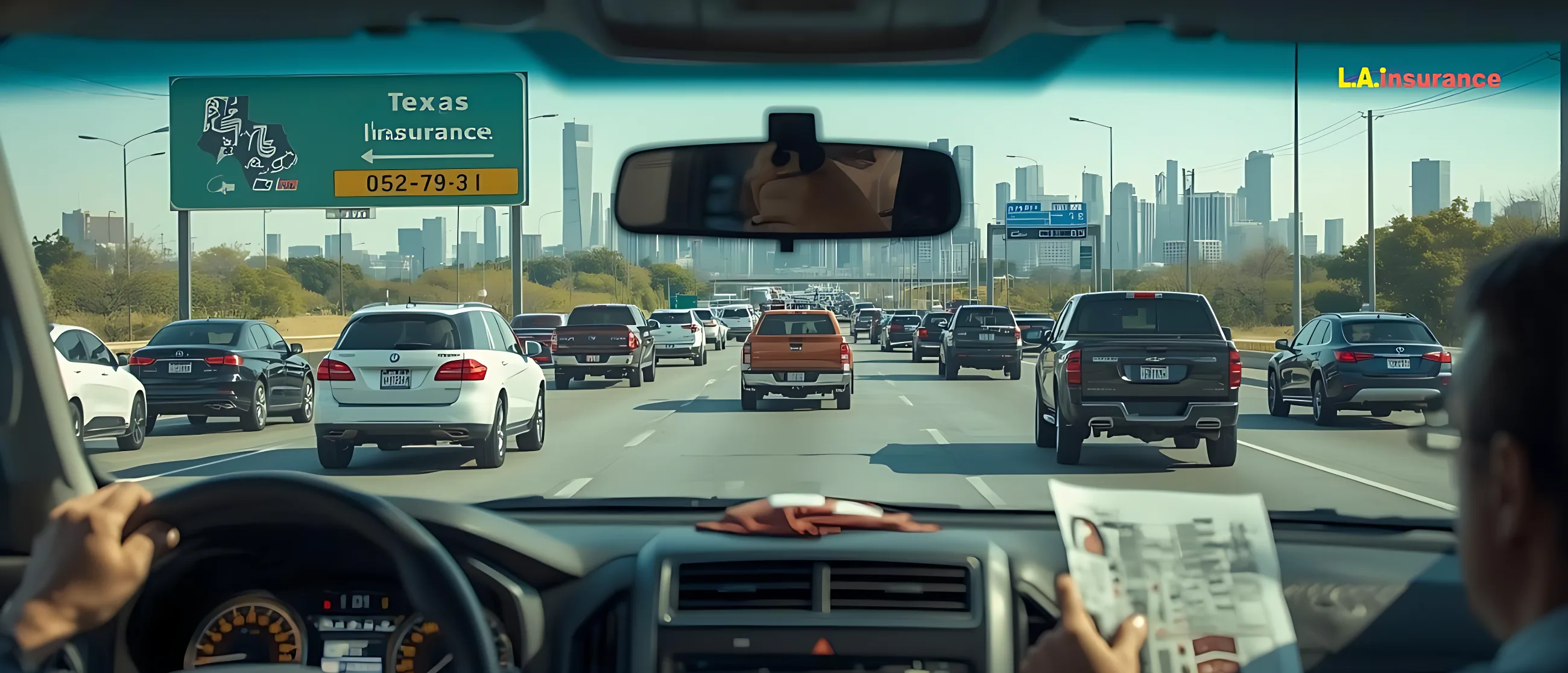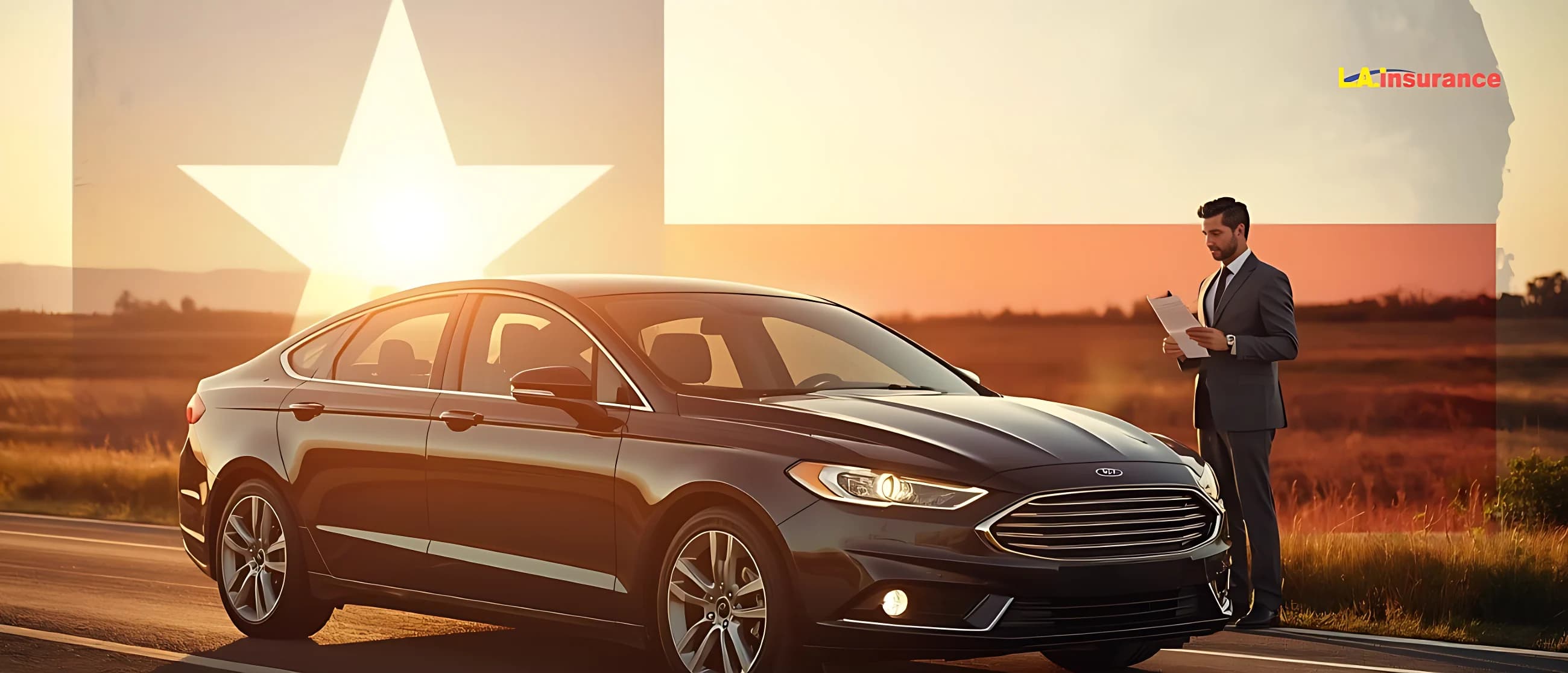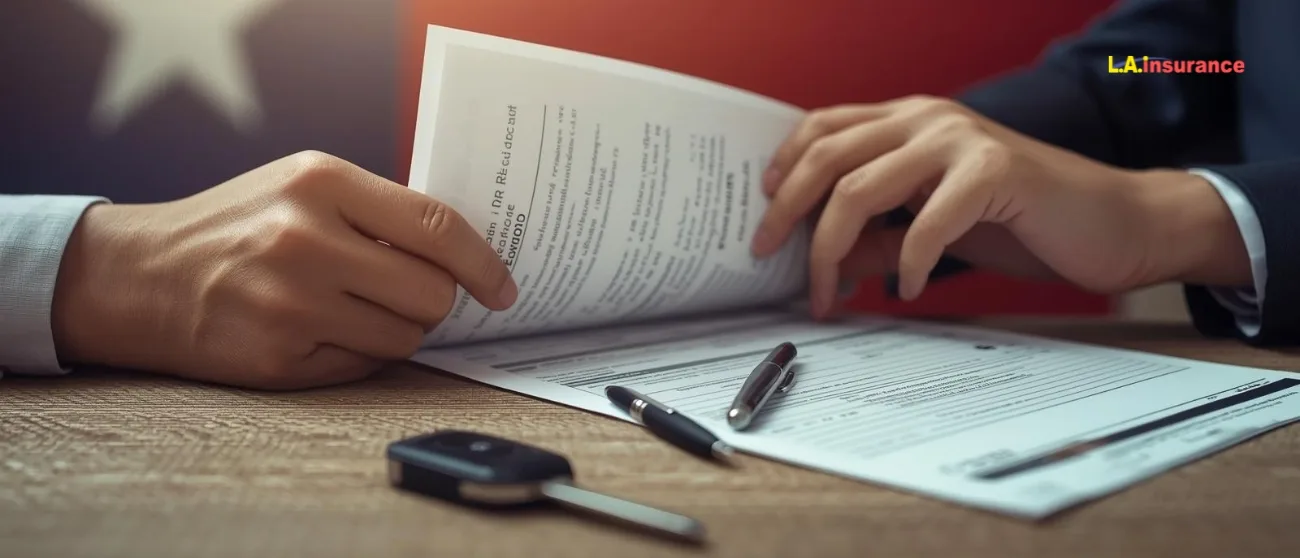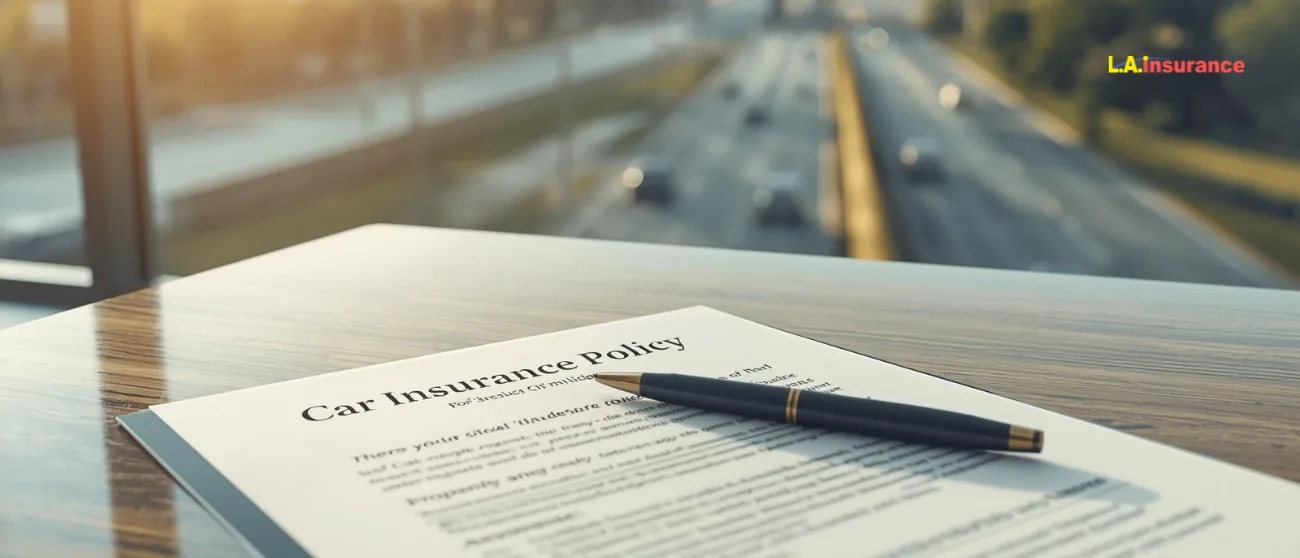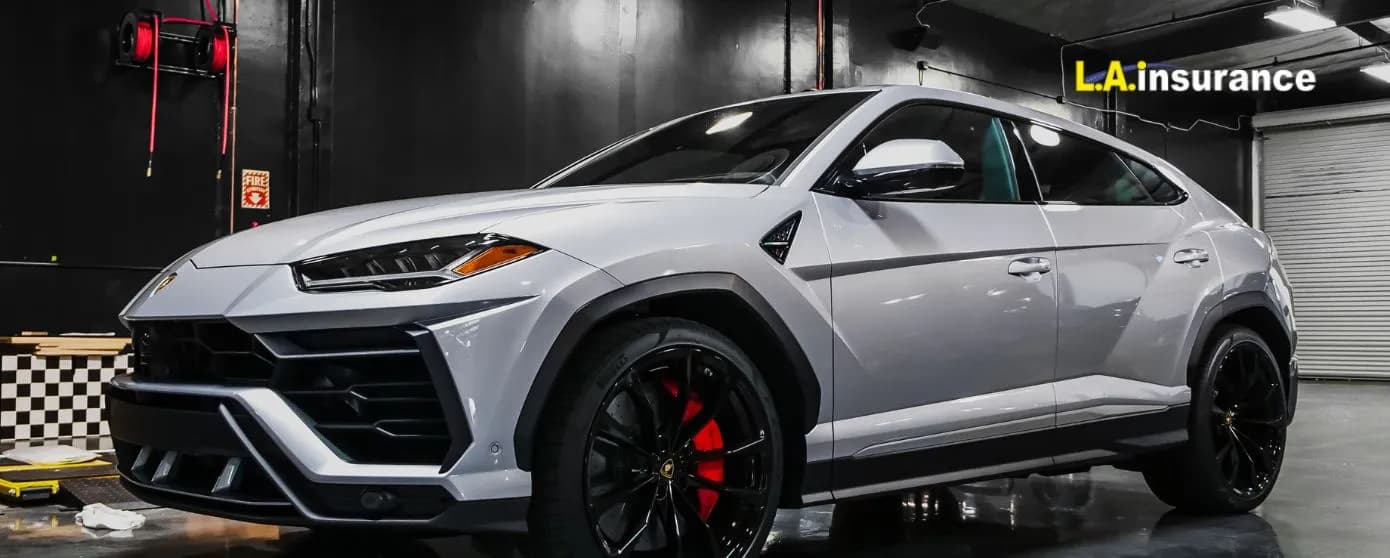
Publish Date: 23-11-2024
Auto Insurance
Last Updated: 22-02-2026
How Do I Register a Car in Colorado?
Getting your car registered in Colorado might seem like a chore, but it’s easier than you think. As a Colorado resident, you need to ensure your vehicle is legally ready for the road. This means having your paperwork in order, insurance ready, and making a trip to the motor vehicle office. Let’s go through the steps to register your car and make it official. It’s important to be prepared and check off the right boxes.
Here's a TL; DR:
- Collect Required Documents such as title, proof of ID, proof of insurance, and VIN verification.
- Head to your local DMV office.
- Fill out the necessary forms.
- Cover registration fees and taxes.
- Receive and install your new plates.
What Do I Need to Register My Car in Colorado
Registering a car in Colorado isn’t hard, but you need the right documents. Let’s keep it simple and clear. You’ll need a few necessary items to get started and a few things to remember to avoid hiccups.
Required Documents
First off, you’ll need your car’s title if you own it outright, or the current registration if it’s coming from another state. If you recently bought a used car, you’ll want the signed title and a bill of sale for proof of the transfer. Having a valid ID like a driver’s license is also a must, as you’ll need it to prove your identity and residency. All documents should be in good shape and clear to read.
Pro Tip: Deadlines to register a vehicle in Colorado are within 60 days of purchase and within 90 days of becoming a resident. Make sure to follow these timelines to avoid late fees.
Proof of Insurance
Colorado law requires minimum liability insurance coverage. You can present your insurance card or electronic proof of insurance, but the insurance must list the car’s VIN (Vehicle Identification Number). Also, make sure your policy meets Colorado’s legal requirements to avoid delays or problems when you visit the motor vehicle office.
Get Insured today! Keep yourself and others safe on the road by being a responsible resident of Colorado. To obtain affordable car insurance that meets the state’s minimum requirements, often expressed as 25/50/15, contact the L.A. Insurance office located in major cities across Colorado, including Denver, Aurora, Arvada, Longmont, and Lakewood. The cheapest insurance in Colorado is within your reach now!
Please note that electronic proof or a declaration page is also acceptable, as long as it clearly shows the VIN, policy number, coverage, and dates.
Learn more about do you need insurance to register a car in Colorado.
Vehicle Identification Number (VIN) Verification
If your car is new to the state, you’ll need to verify its VIN. This process checks if your car matches its paperwork and is in good standing. In Colorado, you’ll need a Verification of Vehicle Identification Number Form (DR 2698). This can be filled out by a licensed dealer, law enforcement officer, or even at an emission testing center. Don’t skip this step. It’s a must for newcomers.
Emission Test Certificate (If Applicable)
In Colorado, certain counties require an emission test to register a car. If your car is located in one of these areas, you’ll need to pass an emissions inspection before you can register it. They will provide you with an emission test certificate after the inspection, which is a required document at the motor vehicle office (DMV). This certificate is key paperwork and without it, you won’t be able to complete the registration if your car is in an emission testing area.
Here’s a list of counties that require you to do an emission testing of both gas and diesel-powered vehicles in Colorado:
- Adams County (in certain areas)
- Arapahoe County (in certain areas)
- Boulder County
- Broomfield County
- Denver County
- Douglas County
- Jefferson County
- Larimer County (in certain areas)
- Weld County (in certain areas)
If your car is registered in any of these counties, you’ll need to visit an approved emission testing station. After passing, the station will give you the certificate, which you’ll bring to the County Motor Vehicle Office during registration.
That’s all you need! And now you know and we hope you don’t have to bother anyone asking about what is required to register a car in Colorado.
How Do I Register a Car in Colorado: Step-by-Step Process
The steps of registering your car in Colorado are super easy so you don’t need to get overwhelmed by it. Just follow the simple steps and you’ll be done before you know it.
1. Visit the Motor Vehicle Office
The first question many people ask is where to register a car in Colorado. The first step is to visit your local County Motor Vehicle Office. For an initial registration (especially when moving from out-of-state), you generally must go in person to surrender your previous title. To save time, you must usually book an appointment in advance, as many counties now require them and walk-ins may be turned away or face significant delays. Make sure you bring all the necessary paperwork: your proof of ownership (title), proof of Colorado insurance coverage, and a secure/verifiable ID. Colorado law requires these to confirm your identity and ownership; without them, you’ll end up making another trip.
If you’re new to Colorado, you have 90 days from establishing residency to register your vehicle. Double-check that you’re heading to the correct office for your specific county. These offices are busiest at the end of the month, so mid-month and mid-week appointments are best. Also, if you’re bringing an out-of-state vehicle, a VIN verification is required. While a standard verification usually costs $20 to $25 at an emissions station or dealership, a Certified VIN Inspection (required for missing titles or salvage vehicles) can cost around $50 to $60.
2. Complete the Application
Once you arrive, the clerk will give you a registration application form to fill out. The form asks for basic information like your name, address, and vehicle details. This isn’t anything too complicated, so don’t worry. Just double-check your entries to avoid any mistakes. Any error can cause delays, and nobody wants to come back a second time.
Besides, the clerk will also review your proof of insurance to make sure it meets Colorado’s requirements. If your policy lacks the minimum liability coverage, they might send you back to your insurance company. Remember, Colorado’s insurance law is pretty strict, so don’t skip this step.
However, if you’re a new resident, Colorado’s expensive car insurance might give you a shock. But don’t worry you always have the option to reach out to the most affordable insurance agency near you!
3. Pay the Fees (As of February 2026)
Next up is paying the required fees, which have changed recently. This includes your registration fee, ownership tax, and the mandatory Keep Colorado Wild Pass (unless you choose to opt out). Registration fees in Colorado vary depending on the weight and age of your car. Newer or heavier cars cost more. The Specific Ownership Tax (SOT) is a personal property tax calculated based on the vehicle’s original taxable value (MSRP) and its age. Newer vehicles pay a higher percentage (starting at 2.1% of taxable value in the first year), which decreases significantly as the vehicle ages.
When it’s time to pay, confirm your county's options. Most offices accept credit cards, checks, and cash, but be aware that credit and debit card payments incur a 2.25% + $0.75 portal fee. After payment, if you are at a physical office, you will typically receive your license plates and registration card immediately over the counter. However, if you order specialty plates or register online, expect them to arrive in the mail within 4 to 6 weeks.
Cost and Fees for Car Registration in Colorado
Registering a car in Colorado isn’t free. You’ll pay several fees based on your vehicle’s weight, age, and taxable value. As of 2026, many administrative and safety fees have been adjusted for inflation
Registration Fees Breakdown
The total cost is a combination of the Base Registration Fee, the Specific Ownership Tax (SOT), and several mandatory safety surcharges. While the base registration is relatively low ($6 to $12.50), the SOT is the largest variable, often costing hundreds of dollars for newer vehicles.
For example, cars up to 2000 pounds have a base fee of $6, according to the Colorado General Assembly. Plus, if the car weighs 4,500 pounds or more the base fee is $12.50. Note that newer cars tend to cost more to register than older ones.
For most standard passenger vehicles, the total registration cost (excluding the SOT) usually falls between $80 and $180, depending on whether you include the state park pass.
Here's a table that demonstrates the different fees for vehicle registration:
| Fee Type | Vehicle Weight / Type | Amount (2026) |
| Base Registration Fee | Up to 2,000 lbs | $6.00 |
| Base Registration Fee | 4,500 lbs or more | $12.50 |
| Road Safety Fee | 2,001 to 5,000 lbs | $23.00 |
| Bridge Safety Fee | 2,001 to 5,000 lbs | $18.00 |
| Keep Colorado Wild Pass | Most passenger vehicles | $29.00 (Automatic opt-in) |
| Highway Maintenance Fee | All vehicles | $7.00 – $12.00 (Age-based) |
| Electric Road Usage Fee | Battery Electric (EV) | $16.00 |
| Electric Road Usage Fee | Plug-in Hybrid (PHEV) | $11.00 |
| License Plate Material | Standard Set (Embossed) | $7.38 |
| Insurance Verification | All vehicles | $0.50 |
| Emissions Control Fee | Emissions-required counties | $1.50 |
Taxes and Additional Charges
Apart from the basic registration fees, there are some taxes and additional charges that come into play. In Colorado, the biggest extra charge is the Specific Ownership Tax. For example, the first-year tax for a car is 2.10% of the taxable value. This tax decreases as your car ages. New cars have higher taxes, while older cars have lower ones.
You’ll also need to pay sales tax when you first buy the vehicle if you purchased it from a dealer. The sales tax rate can vary based on your county, ranging from around 2.9% to 11.2%.
There are also extra charges if you’re registering an out-of-state car or if your paperwork isn’t all in order. For instance, you cannot register your car without insurance. So, if you don’t have proof of insurance at the time of registration, you could face a penalty fee. Besides, if you don’t register your car within 60 days of purchase or becoming a resident, you’ll face late fees of $25 per month.
On a final note, Colorado’s registration fees and taxes can vary widely. So, you might not be able to calculate the exact amount and wonder how much it costs to register a car in Colorado. That’s why we recommend using the State’s Fee Estimator Tool online or visit your local Motor Vehicle Office to get a precise amount.
Special Cases for Registration
Vehicle registration is not very complicated. However, in special cases, it is important to have the right information to avoid penalties or unnecessary problems. Special situations like moving to Colorado, buying a used car, or being out of state can complicate things. Colorado has specific rules for these cases. You better know them to avoid any hiccups. Let’s look at how to handle these special situations when registering your car in Colorado.
Registering an Out-of-State Car
If you’ve moved to Colorado or bought a car from another state, you’ll need to register it within 90 days. One key step is to get a Vehicle Identification Number (VIN) verification done by a licensed Colorado emission testing station, law enforcement, or DMV-approved inspection service. Colorado law also requires emissions tests for certain counties, so be sure to check if your new residence needs one.
You’ll need to provide the title or current registration from the previous state, proof of insurance, and a completed Verification of Vehicle Identification Number form. After getting these documents together, visit your local DMV to finish the process.
Registering a Used Car in Colorado
If you buy a used car in Colorado, you must register it within 60 days. You’ll need the signed title from the previous owner, proof of insurance, and a Bill of Sale if the title doesn’t list the purchase price. If the car is from a county that requires emissions testing, make sure you have an emissions test certificate as well.
A used car usually needs a VIN verification if the previous title was from out of state. After collecting these documents, head to the DMV office to complete the registration.
Registration for Colorado Residents Temporarily Out of State
If you’re a Colorado resident living out of state temporarily, you still need to keep your registration current. You can renew it online or by mail. But if your vehicle needs an emission test and you’re out of state, you can submit a Verification of Emissions Test form from a certified inspection service in your current location.
If you buy a new or used car while out of state, you’ll have to bring it back for a VIN inspection and register it within 90 days of returning. Make sure you keep proof of your out-of-state address and the sales paperwork for your visit to the DMV.
Special Registration for Military Members
Military members stationed in Colorado, but not residents, don’t have to pay Colorado’s ownership taxes. They just need to show proof of active duty and residency in another state. If you’re a Colorado resident stationed elsewhere, you can still renew your registration online or by mail.
For military members moving back to Colorado, if you’re bringing a car titled in another state, you’ll need to follow the same steps as registering an out-of-state car, including a VIN inspection and providing proof of your Colorado residence.
The Bottom Line
To sum up, registering a car in Colorado isn’t complicated if you know the steps. Gather your documents, make sure you have insurance, and check if an emission test is needed. Head to DMV, fill out the forms, pay the fees, and you’re good to go. Special cases, like cars from other states or military registrations, may need a few extra steps. However, it is simple if you have the right information. Just follow these steps, and you'll be ready to drive in no time.
Frequently Asked Questions (FAQs)
How Long Does It Take to Register a Car in Colorado?
Registering a passenger vehicle in Colorado usually takes a single visit to the DMV if you have all the necessary documents ready, such as proof of insurance, identification, and vehicle ownership documents. This process can take around 15-45 minutes depending on wait times at the DMV. Once you have submitted all required paperwork, the DMV typically issues the registration immediately.
Can I Register My Car Online?
You can register your car online if it’s eligible. Visit the My Colorado website or use the My Colorado app for digital registration services like renewals, duplicate requests, and fee estimates which make it convenient and accessible for many residents.
What Happens If I Don’t Register My Car on Time?
If you miss the registration renewal deadline, you may face late fees, which increase over time. Some states, like Colorado, allow a grace period (typically one month) but then add penalties each additional month, usually around $25, up to a maximum. Delays may also lead to fines if you’re pulled over by law enforcement, as driving with an expired registration is illegal in many states.
How Often Do I Need to Renew My Vehicle Registration?
Vehicle registration typically needs to be renewed annually, though some states offer multi-year options. Your renewal notice will usually specify your registration expiration date, and any additional documents required, such as proof of insurance or emission testing. If you’re in Colorado, the vehicle registrations need to be renewed every year. The renewal month is based on the initial registration date.
Do I Need to Register a Car Bought from a Dealership?
Yes, cars purchased from the dealership must be registered. Many dealerships handle this initial registration and title transfer for you bundling the fees into your purchase.
How Much Insurance Do I Need to Register My Car?
Colorado isn’t a no-fault state for auto insurance. So, you’ll have to carry minimum liability insurance to comply with the state’s fault-based insurance system. Minimum coverage includes $25,000 for bodily injury per person, $50,000 per accident, and $15,000 for property damage. As a fault-based state, Colorado requires this insurance to cover injuries or damages you cause in an accident where you’re responsible for the accident.
Editorial Disclaimer
The information provided on this blog is for general informational purposes only and does not constitute professional insurance, legal, or financial advice. Coverage and rates are subject to individual eligibility, underwriting guidelines, and state availability. For specific questions regarding your policy or to get an accurate quote, please contact a licensed L.A. Insurance agent directly. We're an independent agency and not a direct insurance carrier. For more information on how we operate and handle your data, please see our Terms and Conditions and Privacy Policy.
Tag :
Auto insurance
cheap car insurance
car maintenance
